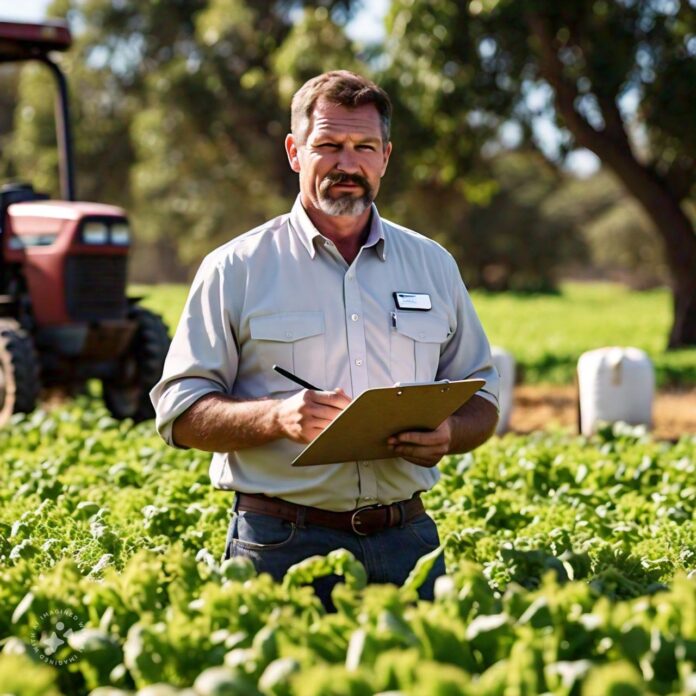Agriculture supervisor paper 2018 is a very useful paper for the candidate to know the examination pattern and practice for the same agricultural service examinations. Such detailed analysis would prove beneficial to lot of aspirants in tuning themselves to the contours of the examination and chart out a successful strategy.
Job Description of the Agriculture Supervisor
Role and Responsibilities
Supervisors in agricultural sector are of immense important since they act as link between the government and the farmers. They coordinate farm activities, advise farmers, and assure the proper administration of agricultural improvement projects. The aforementioned examination was conducted to identify candidates who would best be capable to perform these essential duties in the 2018 enrollment.
Importance as an Agric Extension Communication Tool
These people play a crucial role in raising awareness among farmers about better methods to farm and fertilize in environmentally safe ways and to produce yields. The 2018 paper did this through including questions that assessed candidates’ knowledge in conventional and innovative methods of farming.
Agriculture Supervisor Paper 2018 Format
Exam Pattern Analysis
The 2018 paper followed a structured format consisting of:
- Total marks: 200
- Duration: 3 hours
- Question types: Multiple choice and Descriptive.
- Sections: _COMMON, Knowledge of technology, General information and Agriculture
Marking Scheme
- Multiple choice questions: 1 mark each
- Descriptive questions: 5-10 marks each
- Negative marking: 0.25 marks are cut off for wrong answers in MCQs
- Pass percentage: 40% aggregate
Time Management Strategy
The 2018 paper required careful time allocation:
- MCQs: 1 hour recommended
- Descriptive sections: 2 hours recommended
- Review time: 15 minutes
Analysis of paper 2018 based on subjects
Agricultural Science Section.
Crop Management Questions
The 2018 paper emphasized:
- Crop rotation patterns
- Pest management strategies
- Irrigation techniques
- Harvest management
- Post-harvest technology
Soil Science Topics
Key areas covered included:
- Soil fertility management
- steps to strengthen and improve the soil
- Nutrient management
- Soil testing methods
- Organic farming practices
Technical Knowledge Assessment Advanced Farming Methods
The paper focused on:
- Precision farming
- Greenhouse technology
- Hydroponics
- Farm mechanization
- Digital agriculture
Agricultural Economics
Important topics covered:
- Market analysis
- Agricultural finance
- Crop insurance
- Minimum Support Price
- Agricultural subsidies
Areas of Cafififition from the 2018 Pape Key Focus Areas
The examination emphasized:
- Organic farming
- Climate-smart farming
- Organic certification
- Water management
- Integrated farming systems
Recurring Themes
Common threads throughout the paper included:
– sustainability specifically with the context of the natural environment.
- Technology integration
- Food security
- Rural development
- farmer counselling implementations
Question Distribution
The paper maintained a balanced distribution:
- Technical questions: 40%
- Practical application: 30%
- Theory and concepts: 20%
- Current affairs: 10%
Preparation Strategy Based on the 2018 Paper
Suggested Study Materials
Essential resources include:
- Ordinary agricultural text books
for getting agricultural data, government agricultural sites - Agricultural journals
- Previous year papers
- Online agricultural courses
Practice Approach
Successful preparation requires:
- Regular mock tests
– Topic wise question exercise - Group discussions
- Field visits
- Case study analysis
Time Management Tips
Effective preparation schedule:
- Daily study: 6-8 hours
- Weekly revisions
- Monthly mock tests
- Current affairs updates
- Practice writing
Conclusion
The agriculture supervisor paper 2018 was a good model as it provided an overall guideline of the different skills which should be screened regarding agriculture and the real life interpretation of the concepts. Looking at the structure and content of the paper, I believe that it will remain to be useful for future aspirants. The best approach to such examinations entails blending of the syllabus knowledge and realistic experience.
FAQs
Q1: Who many candidates appeared for the agriculture supervisor exam in 2018?
A: In 2018, about twenty five thousand candidates sat for the agriculture supervisor examination out of which only about fifteen percent passed the examination.
Q2: What this my colleagues’ minimum years of schooling for the 2018 examination?
A: The job required Bachelor’s degree in Agriculture /Related discipline from a recognized University with minimum 50 % marks.
Q3: Did they make changes in the pattern of the exam different from the previous ones?
A: The paper presented in 2018 formulated more questions concerning modern approaches to farming and digital agriculture than those in the previous years.
Q4: How much the practical knowledge questions were involved in the 2018 paper?
A: Practical knowledge questions made about one-third of the paper and thus stressed field experience.
Q5: What was the mode of short listing after the written test?
A: This was followed by document verification, physical fitness test, and personal interview of the candidates who qualified the written test.
